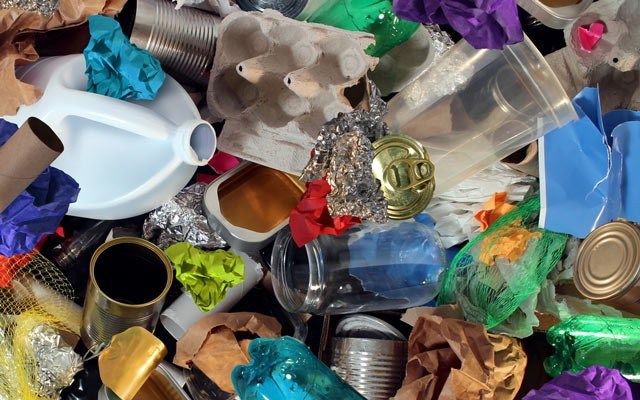You've likely already seen the signs at the local compactor sites telling you that change is coming.
From May 19 the Nesters and Function locations for garbage disposal and recycling will be gated, have an attendant from 7 a.m. to 7 p.m., and be closed at night.
This change is being driven by the Resort Municipality of Whistler's decision to take part in a provincially mandated program the aim of which is to shift responsibility for packaging and waste disposal from taxpayers and municipalities to industry producers. It will also expand the list of recyclables to include such things as Styrofoam and milk cartons.
In May 2011, the B.C. Liberal government amended environmental regulation laws to force every producer of paper and packaged goods to be responsible for the life cycle of their goods, including the collection, processing and marketing, beginning in May 2014. It put control into the hands of an industry-led group, called Multi Material B.C. (MMBC).
Local governments that collect waste for recycling were given a three-point ultimatum by MMBC:
• Accept MMBC's financial offer and keep collecting paper and packaged products (PPP) using the local government's contractor;
• Decline the MMBC offer and transfer collection to MMBC and its contractors;
• Decline MMBC and continue to collect PPP without MMBC involvement.
Whistler, like Vancouver and Burnaby, is going with MMBC.
Prince George, on the other hand, rejected MMBC's offer. A staff report from the City of Prince George states: "MultiMaterial BC has offered a subsidy to the City of Prince George for the curbside collection of recyclables. This offer comes with a service contract that is prohibitively favourable to MMBC, and would, if the City were to participate, expose the City to some financial risk. Administration is recommending that Council decline to participate in MMBC's proposal."
The regional district of Fraser-Fort George (in which the city is located) reached the same conclusion — neither the city nor the regional district would sign on.
And it's not just local government. In Nanaimo Buckerfields is refusing to comply, as are a number of other businesses.
In the case of Whistler the staff report at the last council meeting, March 18, stated that the "MMBC recycling program expected to save approximately $125,000 per year."
Despite the RMOW initially indicating that there were no capital cost to the taxpayer, in fact, $60,000 has to be spent almost immediately to cover the costs of gates, fencing, signs, advertising and maybe even cameras — there is concern that people will just dump their garbage at the locked gates during the night.
The plan, according to Pique's council story last week on the issue is to discuss the attendant work with groups such as AWARE and Whistler Community Services as a way for them to raise funds.
The benefits, states the Whistler staff report, include the fact that the RMOW will no longer require transportation and handling services, there will be significant reduction in the scope of work that is currently part of the Solid Waste Management Agreement, and there will be improved recycling options and standardization of the recycling categories across the province.
The goal of MMBC is to increase the recycling of product packaging in B.C. to 75 per cent from the 50 to 53 per cent that is collected now.
Whistler's total diversion rate in 2012 was 56 per cent. In other words, Whistler reused, recycled or composted 16,157 tonnes of the total 29,026 tonnes of waste. The diversion rate for 2013 has not been calculated yet, but will be part of an annual solid waste report coming to council in the next couple of months.
The RMOW expects that the recycling rate will increase with the MMBC program. The successful of the program, however, relies on residents getting on board with proper practices — no more metal lids left on the glass jars and so on.
Provincially the program has stirred controversy. The Canadian Federation of Independent Business (CFIB) is calling for a delay in implementation arguing that changes could kill jobs and increase red tape.
"It's better to hit the pause button and rethink this rather than being stuck with a bad law on May 19," said Mike Klassen, B.C. director of provincial affairs for the CFIB.
Nine major business associations representing tens of thousands of B.C. small businesses and their employees have formed a coalition and launched a campaign to protest regulatory changes involving the recycling of printed-paper and packaging. The Rethink It, B.C.! campaign has launched a media and social media blitz with ads running in 130 newspapers across the province.
Indeed community newspapers are one of the businesses most affected with a 20-cents-a-kilogram stewardship fee under the MMBC — a cost of $14 million a year to the industry. In Ontario the fee is five cents a kilogram.
Eighty-five per cent of all newsprint is captured in the current B.C. recycling system, well above the government's own target of 75 per cent, which is in the new regulations.
How will these changes affect Whistler businesses is yet to be seen, but one thing is certain, recycling in the resort just got serious.




